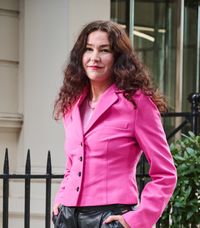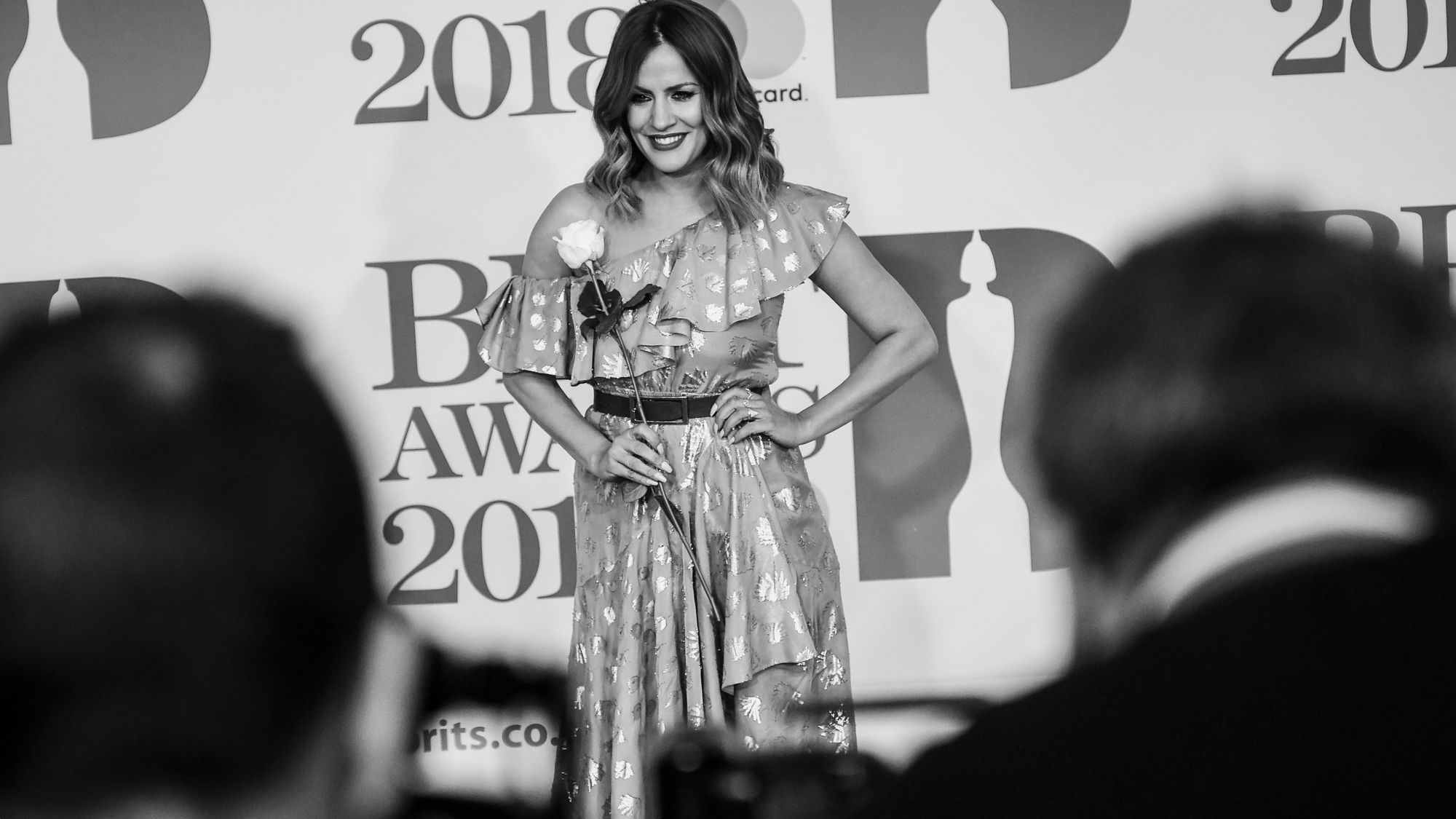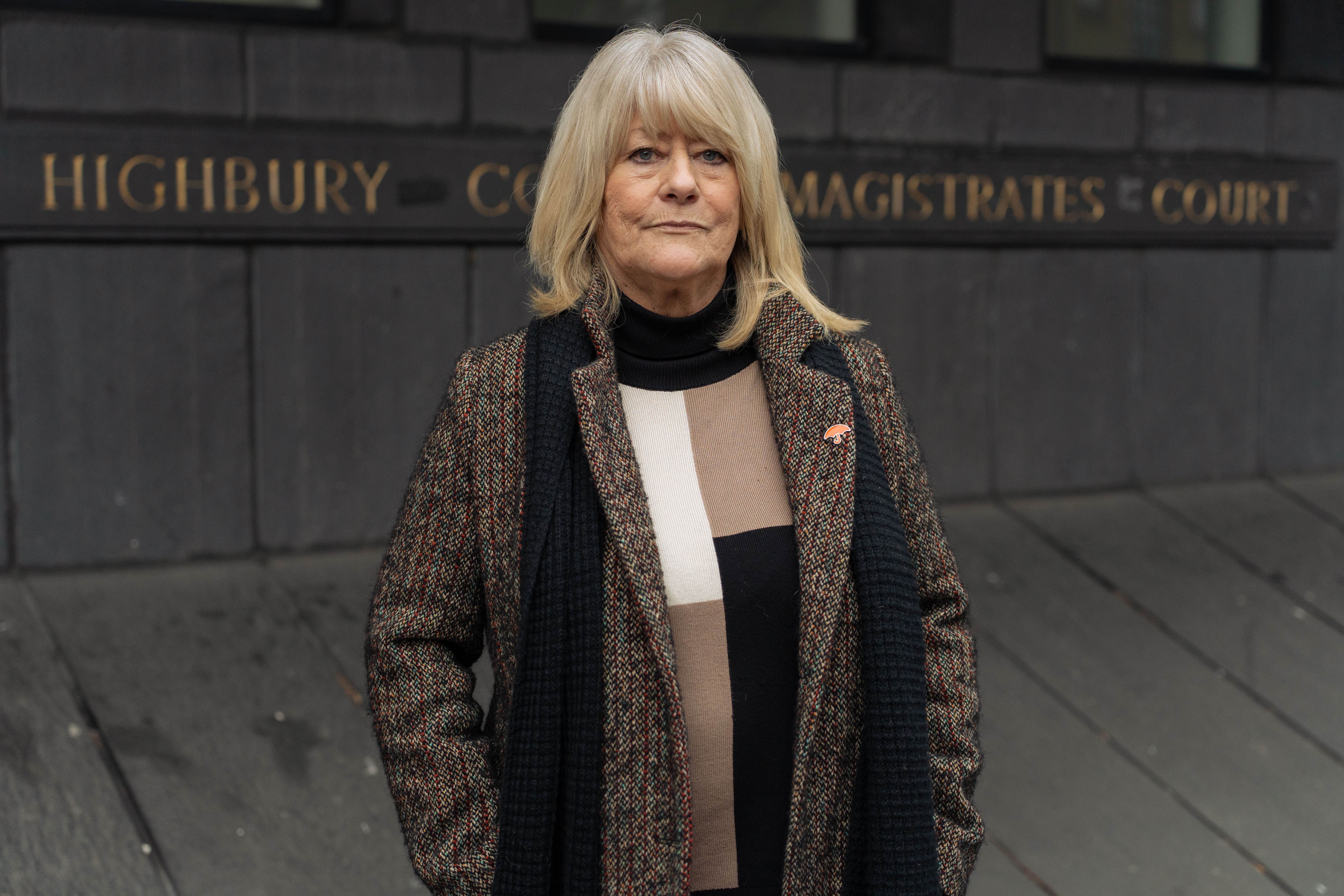The Caroline Flack Documentary Lays Bare the Brutal Ways Women Are Torn Down
Five years on, are we any kinder to women in the spotlight?


Celebrity news, beauty, fashion advice, and fascinating features, delivered straight to your inbox!
You are now subscribed
Your newsletter sign-up was successful
Warning: Contains references to suicide and abuse
“I want justice for my daughter,” says Christine Flack in the new Disney+ documentary, Caroline Flack: Search for the Truth. The two-parter shows a mother’s unflinching quest to uncover what really happened in the final months of her daughter’s life.
In the five years since Caroline Flack took her own life after months of intense media scrutiny and public speculation about her private life, her name has become a kind of shorthand for tragedy and a cautionary tale about fame, mental health, and the cruelty of the public eye. But this documentary asks us to look past the tabloid frenzy to see the woman behind the story: the daughter Christine lost.
The series doesn’t dwell too much on Caroline’s career before the night that would change her life — Strictly Come Dancing, Love Island, The X Factor — so I won’t either, but to call her a TV star feels like an understatement. Paul Martin, a showbiz reporter and the only journalist to appear in the documentary, recalls her as “the golden girl who delivered for so long.” Even at her lowest, she continued to ‘deliver,’ at least in terms of selling newspapers. Martin recounts an especially brutal moment when an editor told him, speaking of Caroline, “If she’s not willing to talk to you, f*** her over then.” It’s hard to imagine a male celebrity being treated with the same calculated cruelty.
Fronted by Christine Flack, the documentary retraces the months before Caroline’s death, revisiting the relentless media circus that turned her daughter’s life into a macabre spectacle. What emerges isn’t just the story of a woman undone by fame, but of a society addicted to outrage, quick to condemn, and insatiable in its appetite for so-called retribution.
It’s easy, and perhaps more comfortable to blame the press, but vampiric though it is, it is not solely to blame; we are all complicit in fuelling the fire. Without a public reaction, sensationalist stories would soon stop being printed.

Caroline Flack's mother, Christine Flack, stood outside the court where her daughter was due to stand trial.
Revisiting the time just before COVID-19, the documentary takes viewers through the social media mobs and the public bloodlust for punishment. Caroline’s solicitor, Paul Morris, says she was “prosecuted for being Caroline Flack.”
Celebrity news, beauty, fashion advice, and fascinating features, delivered straight to your inbox!
The moral outrage might’ve felt righteous at the time, but I wonder how anyone who indulged in tearing her down feels now? Like the social media commentator who wrote that “women like her disgust me.” Or those who commented on photos of her leaving the court hearing, calling her a “hooker” and a “slapper”. Would similar insults be levied at a man in the same position?
Caroline’s greatest fear, the documentary reveals, was the release of the bodycam footage showing her in the private moments of a mental health crisis. It’s a tragic reminder of the stigma and shame that still surround mental health. Headlines like “Mad Flack Beat Lover With Lamp” weren’t just cruel and sensationalist; they reinforced the dangerous stereotype of the “crazy woman.”
Through Christine, we learn that Caroline had long struggled with her mental health, something she not only felt she couldn’t share but worried that if it came out, she would be ruined. Watching the documentary, the hope is that others in the public eye today wouldn’t have these same concerns, that as a society we have progressed, but I’m not sure how confidently I can believe that.
Caroline’s story is exceptional only in its visibility. The mechanisms that destroyed her — online pile-ons, armchair moralising, and the desire to take women down — show up everywhere. When Laura Whitmore was chosen to replace Caroline as the host of Love Island, commentators were quick to pit the pair against each other, despite being friends in real life. It seems to be an almost knee-jerk reaction when women share the same spotlight. It’s not the reserve of celebrities either. Women are constantly pitted against each other, judged more harshly than men, and rarely afforded second chances.
Caroline Flack: Search for the Truth forces us to confront the uncomfortable reality about society’s appetite for cruelty. Episode one opens with Christine explaining her motives for pursuing the project Caroline had originally considered before she took her own life. She says she wants to find out why her daughter was treated so badly by institutions that should have protected her. The lingering question I have is whether we’ve learned anything since.
If you or someone you know is struggling, you can call Samaritans for free at 116 123 or visit samaritans.org

Mischa Anouk Smith is the News and Features Editor of Marie Claire UK.
From personal essays to purpose-driven stories, reported studies, and interviews with celebrities like Rosie Huntington-Whiteley and designers including Dries Van Noten, Mischa has been featured in publications such as Refinery29, Stylist and Dazed. Her work explores what it means to be a woman today and sits at the intersection of culture and style. In the spirit of eclecticism, she has also written about NFTs, mental health and the rise of AI bands.